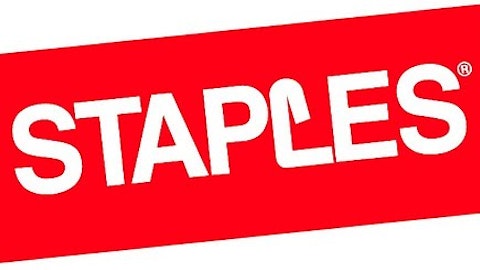Exchange-traded funds offer a convenient way to invest in sectors or niches that interest you. If you’d like to add some financial stocks to your portfolio but don’t have the time or expertise to hand-pick a few, the iShares Dow Jones U.S. Financial Sector ETF could save you a lot of trouble. Instead of trying to figure out which companies will perform best, you can use this ETF to invest in lots of them simultaneously.
The basics
ETFs often sport lower expense ratios than their mutual fund cousins. The iShares ETF’s expense ratio — its annual fee — is a relatively low 0.46%.
This ETF has a mixed performance record, lagging the world market over the past five and 10 years (during which they suffered through a credit crisis) and topping it over the past three. As with most investments, of course, we can’t expect outstanding performances in every quarter or year. Investors with conviction need to wait for their holdings to deliver.

If you expect the financial sector to do well over time as it recovers from the meltdown of several years ago, you might want to consider financial stocks for your portfolio. Remember, for example, how good banks are at levying fees and generating income, no matter what regulations are thrown at them.
More than a handful of financial companies had strong performances over the past year. Visa Inc (NYSE:V), for example, surged 36% and is poised to profit from the ongoing global shift from cash transactions to electronic ones. Its presence in emerging markets is particularly promising, as such economies are growing rapidly — and for Visa Inc (NYSE:V), that means more people beginning to use plastic for purchases. Visa Inc (NYSE:V) is far bigger than its rivals, but it’s worth noting that MasterCard is doing particularly well. Both companies are threatened by the potential of mobile payments and increased regulation, and Visa Inc (NYSE:V) in particular by a recent court decision that may lead to lower revenue from debit cards.
AFLAC Incorporated (NYSE:AFL), an insurance company, quacked up a 34% gain. It derives the lion’s share of its revenue from Japan, and it stands to profit as the country’s economic condition improves. It’s also experiencing solid growth in the U.S., where its supplemental insurance is selling well. With a forward P/E below 9 and a yield of 2.3%, AFLAC Incorporated (NYSE:AFL) looks like a bargain. Its profit margins have been increasing in recent years, too.
BB&T Corporation (NYSE:BBT) advanced 15%. It’s a sizable Southeastern regional bank, posting solid numbers in recent financial reports. Its second quarter featured improved credit quality and improving loan and deposit balances, along with better-than-expected earnings. Management noted that overall, “it was a very solid quarter, especially given the kind of sluggish economy we have. Basically, frankly, everything looks good except expenses.” Others, such as analyst Stephen Simpson, have pointed out that BB&T Corporation (NYSE:BBT)’s loan growth is a bit sluggish — though not much more than its peers. The bank yields 2.6%.
U.S. Bancorp (NYSE:USB) gained 14% and yields 2.5%. It’s respected enough by folks in Omaha that it’s one of the top 10 holdings in Berkshire Hathaway‘s stock portfolio, with a 27% increase in the position reported in the last quarter. The bank is looking to profit from mobile banking, charging fees for check deposits and developing voice-recognition capabilities in its apps, to increase convenience.
The big picture
Demand for financial services isn’t going away anytime soon. A well-chosen ETF can grant you instant diversification across any industry or group of companies — and make investing in and profiting from it that much easier.
The article These Financial-Services Companies Are Poised to Grow originally appeared on Fool.com and is written by Selena Maranjian.
Longtime Fool contributor Selena Maranjian, whom you can follow on Twitter, owns shares of Berkshire Hathaway. The Motley Fool recommends AFLAC, Berkshire Hathaway, MasterCard, and Visa and owns shares of Berkshire Hathaway, MasterCard, and Visa.
Copyright © 1995 – 2013 The Motley Fool, LLC. All rights reserved. The Motley Fool has a disclosure policy.





